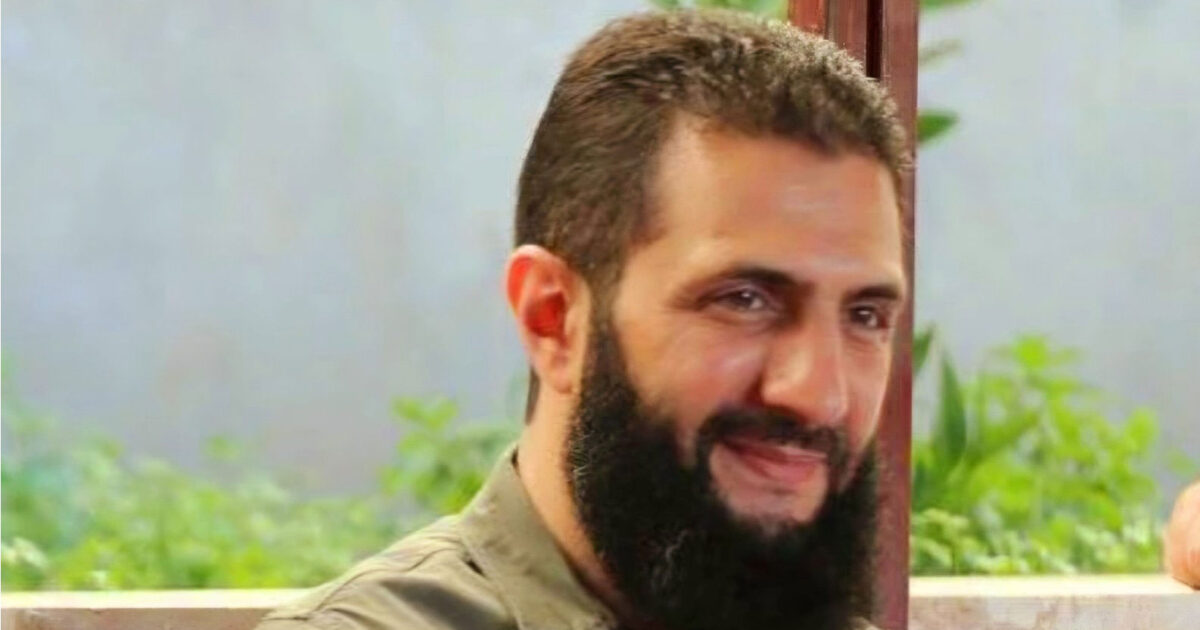Abu Mohammed al-Jolani, the Islamist leader of the rebel coalition that carried out a lightning attack on Syria which caused today, according to his fighters, the downfall of the president Bashar al-Assadhas moved from a fundamentalist vocabulary to a discourse that seeks to be moderate in order to achieve its ends.
The leader of Hayat Tahrir al-Sham (HTS), a former branch of al-Qaeda in Syria, has set his sights on toppling President Assad, who has been in power since 2000. Today, rebels entered the capital and declared “the city free of Damascus”.
Tall, husky, with a black beard and a lively gaze, Jolani has gradually abandoned the jihadist turban he wore at the start of the war in 2011 for a military uniform and sometimes a suit.
After breaking with al-Qaeda in 2016, he is trying to normalize his image and present a more moderate face, but without convincing analysts or even Western governments, who classify HTS as a terrorist organization.
“He is a pragmatic radical,” Thomas Pierre, an expert on Islamism in Syria, told AFP.
“In 2014 he was at the height of his radicalization to assert himself against the radical faction of the insurgency and the (jihadist) Islamic State organization, but then he moderated his speech,” explains this CNRS researcher.
Born in 1982, Ahmed al-Sara, which is Jolani’s real name, grew up in Mazeh, an affluent district of Damascus, in a wealthy family. And he began studying medicine. After the rebel offensive launched on November 27, Jolani began signing under his real name.
In 2021, he explained in an interview with the American public network PBS that his war moniker, Abu Mohammed al-Jolani, is a reference to his family’s roots, originating from the Golan Heights (al-Jolan in Arabic). According to him, his grandfather was displaced from the Golan in 1967 after Israel conquered a large part of this Syrian plateau.
According to Middle East Eye, “the first signs of jihadism began to appear in Jolani’s life” after the 9/11 attacks, when he “will begin attending sermons and secret roundtables in the marginalized suburbs of Damascus.”
After the US invasion of Iraq in 2003, he left to fight in that neighboring country of Syria, where he joined Abu Musab al-Zarqawi’s al-Qaeda in Iraq organization before being jailed for five years. After the start of the uprising against Assad in 2011, he returned to his homeland to establish the al-Nusra Front there, which would evolve into HTS.
In 2013, he refuses to be anointed by Abu Bakr al-Baghdadi, the future leader of the Islamic State, and prefers al-Qaeda emir Ayman al-Zawahri.
A realist, according to his followers, an opportunist, according to his opponents, he declared in 2015 that he had no intention of launching attacks against the West, unlike the Islamic State.
When he cuts ties with al-Qaida, he says he does so “to remove the pretexts of the international community” to attack his organization.
Since then he has followed “a course based on his pursuit of becoming a statesman,” says Pierre.
Choosing the velvet glove over the iron fist, in January 2017 he forced the radical rebels of northern Syria to merge into HTS. He establishes a political administration and multiplies positive movements against Christians in the province of Idlib (northwest Syria), which his organization has controlled for two years.
It is there that HTS has been accused by residents, relatives of detainees and human rights defenders of atrocities that amount to war crimes, according to the UN, sparking protests a few months ago.
After the attack, Jolani sought to reassure residents of Aleppo, a city that has a significant Christian community. And he called on his fighters to safeguard “security in the liberated areas”.
“I believe that it is first of all a matter of good politics. “The less Syrians and the international community fear, the more Jolani will appear as a responsible actor rather than a toxic extremist jihadist, and the easier it will be to achieve his goal,” assures researcher Aaron Lund.
“Is he being completely honest? Certainly not. This guy comes from a very hardline religious fundamentalist tradition. But what he’s doing is the smart thing to say and do right now,” Lund concludes.
